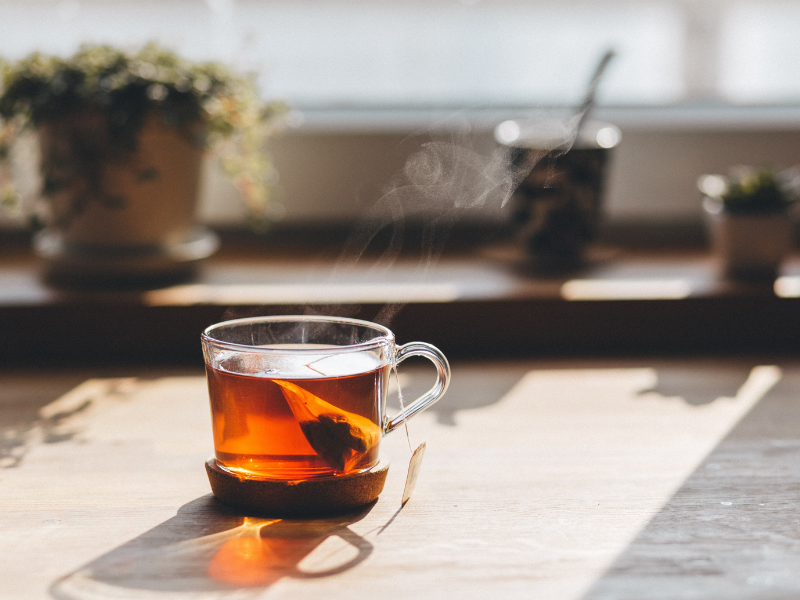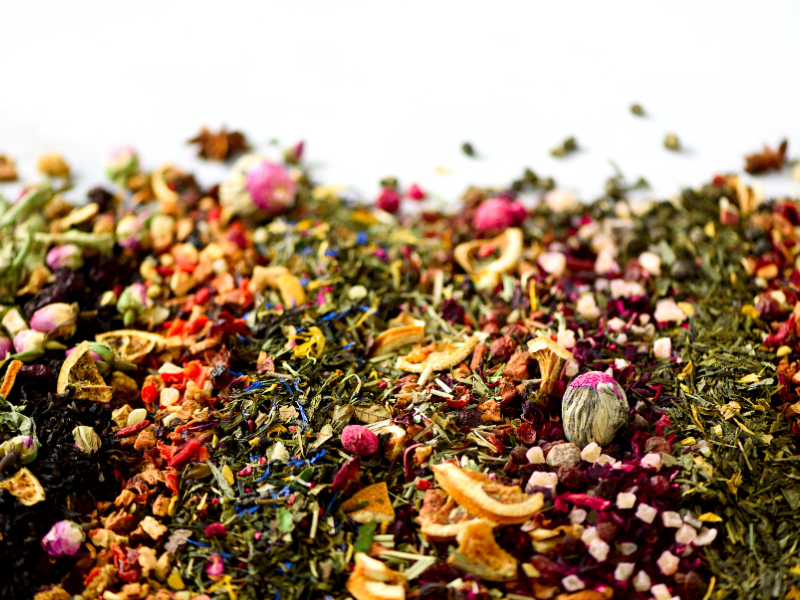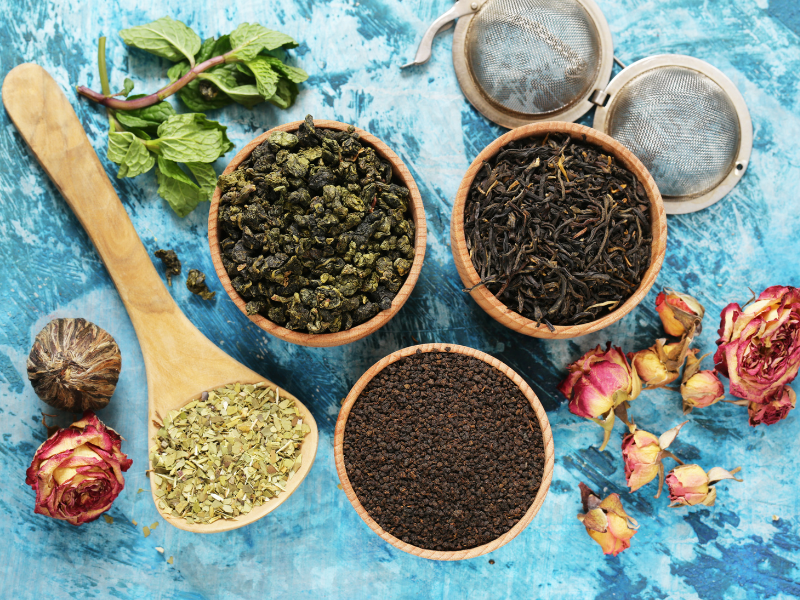Sip sip!
Tea is not only better at hydrating you than coffee, it’s also easier on your stomach.
There are several types of teas commonly found in grocery stores, each with its own set of potential health benefits. Here are some popular types and their associated benefits:

- Green Tea:
- Antioxidants: Green tea is rich in antioxidants, such as catechins, which can help combat oxidative stress and reduce the risk of chronic diseases.
- Weight Management: Some studies suggest that the catechins in green tea may aid in weight loss by boosting metabolism and fat oxidation.
- Heart Health: Regular consumption may lower the risk of cardiovascular diseases by improving cholesterol levels and reducing blood pressure.
- Black Tea:
- Heart Health: Black tea contains compounds that may promote heart health by reducing the risk of heart disease and improving blood vessel function.
- Digestive Health: It may help with digestion and support gut health due to its polyphenol content.
- Energy Boost: Black tea contains caffeine, providing a moderate energy boost without the jitteriness associated with coffee.
- Chamomile Tea:
- Sleep Aid: Chamomile tea is known for its calming properties and may help improve sleep quality and reduce insomnia.
- Digestive Relief: It can alleviate digestive discomfort and symptoms like bloating, gas, and indigestion.
- Stress Reduction: Chamomile tea has a soothing effect and may reduce stress and anxiety.
- Peppermint Tea:
- Digestive Health: Peppermint tea can relieve indigestion, bloating, and irritable bowel syndrome (IBS) symptoms.
- Headache Relief: It may help alleviate tension headaches and migraines due to its muscle-relaxing properties.
- Respiratory Benefits: Peppermint tea can ease symptoms of congestion and improve respiratory health.
- Herbal Teas (e.g., Ginger, Turmeric, Rooibos):
- Anti-Inflammatory: Ginger and turmeric teas have anti-inflammatory properties that may help reduce inflammation and joint pain.
- Immune Support: Some herbal teas contain immune-boosting compounds that can help the body defend against infections.
- Caffeine-Free: Herbal teas like rooibos are caffeine-free and suitable for those looking to avoid caffeine.
- White Tea:
- Antioxidants: White tea is rich in antioxidants, similar to green tea, which can help protect cells from damage.
- Skin Health: It may promote healthier skin by reducing the effects of aging and supporting collagen production.
- Oral Health: Some studies suggest that white tea may help inhibit the growth of bacteria responsible for tooth decay and gum disease.

It’s essential to note that while these potential benefits are associated with various types of tea, individual responses can vary. Moreover, the quality of tea and how it’s prepared can affect its health benefits. Drinking tea in moderation as part of a balanced diet is generally a healthy choice, but it’s always a good idea to consult with a healthcare professional for personalized advice, especially if you have specific health concerns or are taking medications.



